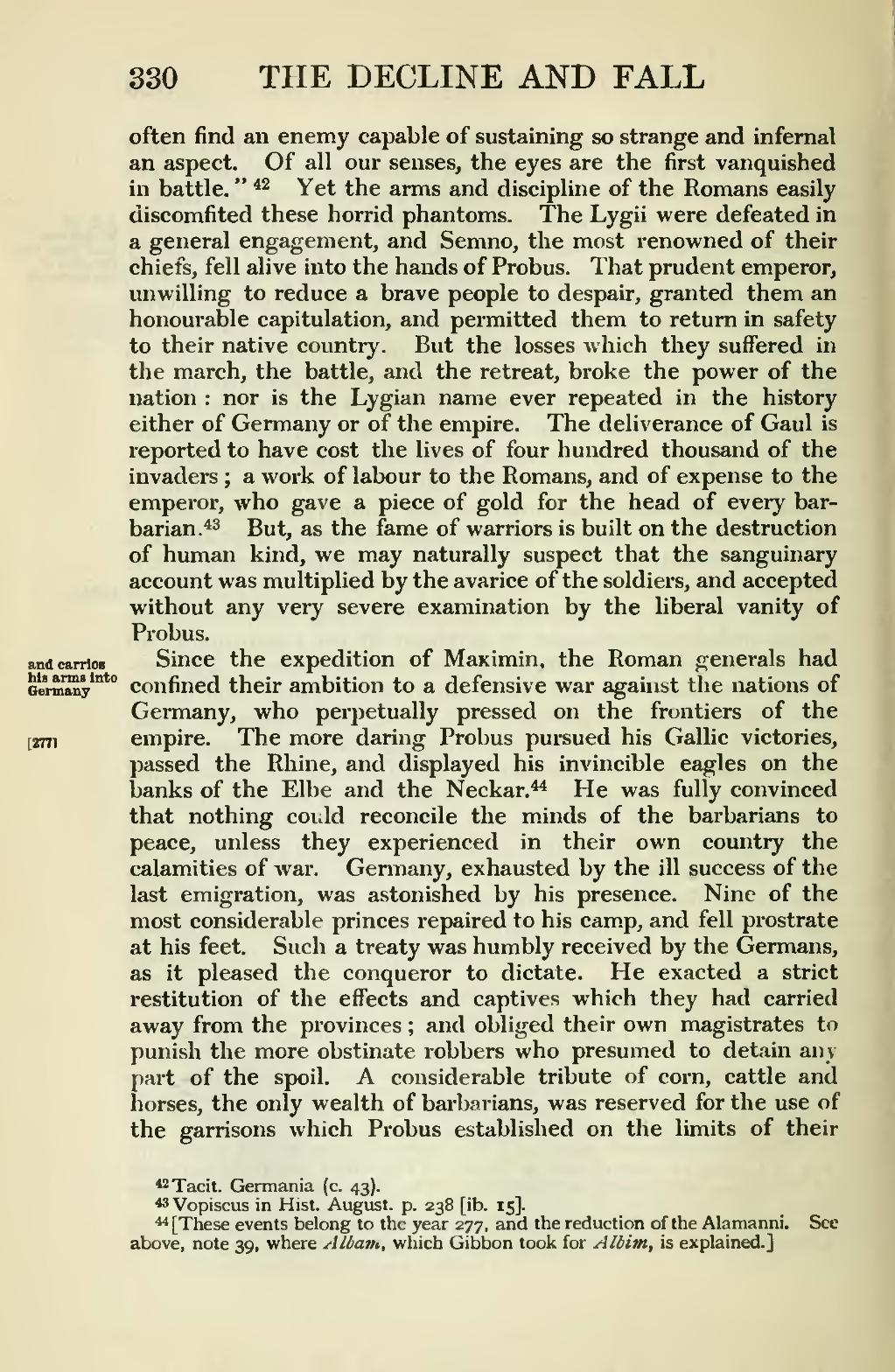often find an enemy capable of sustaining so strange and infernal an aspect. Of all our senses, the eyes are the first vanquished in battle."[1] Yet the arms and discipline of the Romans easily discomfited these horrid phantoms. The Lygii were defeated in a general engagement, and Semno, the most renowned of their chiefs, fell alive into the hands of Probus. That prudent emperor, unwilling to reduce a brave people to despair, granted them an honourable capitulation, and permitted them to return in safety to their native country. But the losses which they suffered in the march, the battle, and the retreat, broke the power of the nation: nor is the Lygian name ever repeated in the history either of Germany or of the empire. The deliverance of Gaul is reported to have cost the lives of four hundred thousand of the invaders; a work of labour to the Romans, and of expense to the emperor, who gave a piece of gold for the head of every barbarian.[2] But, as the fame of warriors is built on the destruction of human kind, we may naturally suspect that the sanguinary account was multiplied by the avarice of the soldiers, and accepted without any very severe examination by the liberal vanity of Probus.
Since the expedition of Maximin, the Roman generals had confined their ambition to a defensive war against the nations of Germany, who perpetually pressed on the frontiers of the empire. The more daring Probus pursued his Gallic victories, passed the Rhine, and displayed his invincible eagles on the banks of the Elbe and the Neckar.[3] He was fully convinced that nothing could reconcile the minds of the barbarians to peace, unless they experienced in their own country the calamities of war. Germany, exhausted by the ill success of the last emigration, was astonished by his presence. Nine of the most considerable princes repaired to his camp, and fell prostrate at his feet. Such a treaty was humbly received by the Germans, as it pleased the conqueror to dictate. He exacted a strict restitution of the effects and captives which they had carried away from the provinces; and obliged their own magistrates to punish the more obstinate robbers who presumed to detain any part of the spoil. A considerable tribute of corn, cattle and horses, the only wealth of barbarians, was reserved for the use of the garrisons which Probus established on the limits of their
